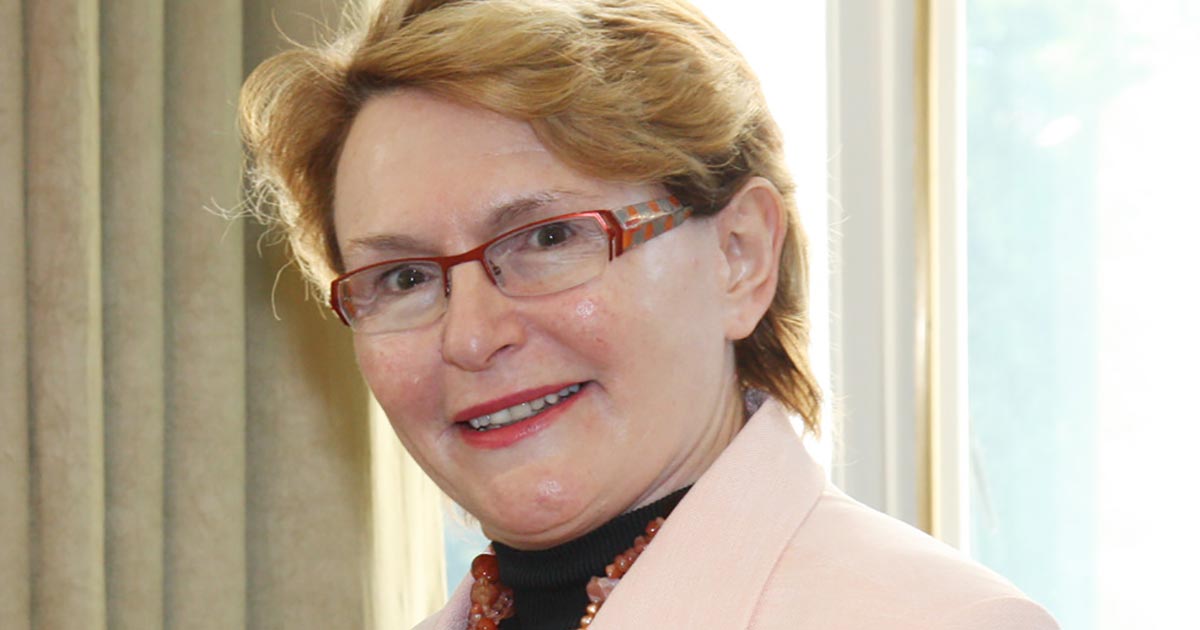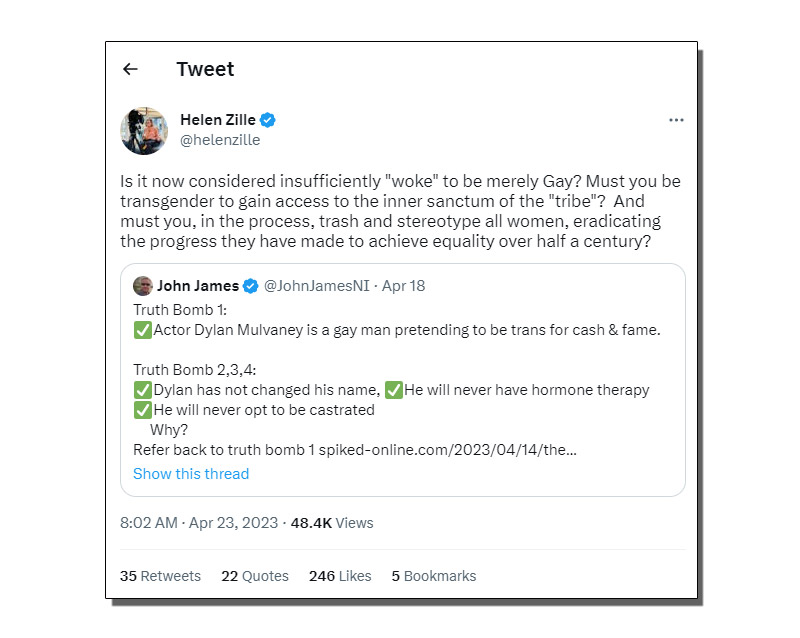Helen Zille says people identify as gay or trans to be “woke”

Helen Zille has become known for her offensive and tone-deaf tweets (Photo: Foreign and Commonwealth Office)
Helen Zille, the Chairperson of the DA Federal Council, has made a statement revealing her disturbing views on gay and trans people. She’s expressed the belief that we identify as queer to be “woke.”
On Sunday, Zille responded to a tweet by John James, who identifies as “#GayNotQueer,” regarding Dylan Mulvaney, a controversial transgender American actress and social media personality. In the tweet, James repeats the claim that Mulvaney is a “gay man pretending to be trans for cash and fame.”
Mulvaney has been at the centre of a massive transphobic backlash fueled by America’s culture wars. This was sparked by a social media video in which she revealed a pack of Bud Light beer cans, sent to her by the brand, that were personalised with her image.
.
The unveiling video sparked an unprecedented wave of transphobic hate against Mulvaney and Bud Light. As a result, a boycott was called for and the brand’s marketing vice president, Alissa Heinerscheid, was replaced.
Mulvaney’s expressive and sometimes flamboyant personality has been vilified by her critics as “mocking” women, leading to claims such as the one tweeted by James.
When Zille retweeted his post, she commented: “Is it now considered insufficiently ‘woke’ to be merely Gay? Must you be transgender to gain access to the inner sanctum of the ‘tribe’? And must you, in the process, trash and stereotype all women, eradicating the progress they have made to achieve equality over half a century?”
The statement is problematic and offensive on multiple levels. Firstly, Zille’s views suggest that being gay or trans is not legitimate or authentic, but rather an attempt to be “woke” and part of a supposed “tribe.”
Many of us will have heard this ridiculous and insulting view, that we are queer because it’s fashionable or “trendy”. It’s an unbelievable statement from someone in a leadership position in a so-called “liberal” party.
Zille’s views disregard the complexity of personal identity and the lived experiences of the LGBTIQ+ community
Zille also propagates the damaging narrative that transgender individuals, by simply existing or striving for their right to equality, are a threat to women’s rights and the progress they have made. This narrative is not only harmful but also unfounded, and it only serves to deepen the discrimination and marginalisation faced by the trans community.
It’s a stance that the DA seems to be settling into as a party as seen in its recent opposition to the Hate Crimes and Hate Speech Bill.
Zille’s statement reflects a lack of critical thought, perpetuates harmful stereotypes (that she herself opposes), and demeans an individual whose actions and expressions have not harmed anyone.
Her views oversimplify and disregard the complexity of personal identity and the lived experiences of the LGBTIQ+ community.
The DA needs to take action and hold Helen Zille accountable for her harmful rhetoric if it wants to continue to claim its LGBTIQ-allyship beyond its photo-op rainbow-washing in the Western Cape. As the party slides to the right, its LGBTIQ+ members, councillors and MPS must speak out or risk the DA losing any credibility it may have in our community.

DA can forget about my vote unless they do something drastic about this washed out wannabe queen
Read for meaning, for context, for understanding.
The tone of the tweet appears to be critical and questioning. The author seems to express concern about the concept of being “woke” and how it relates to being gay and transgender. There is a hint of frustration in the tone, suggesting a disagreement with the idea that being transgender is necessary to be accepted within certain groups or communities. The author also raises the issue of women’s progress towards equality, expressing a belief that certain actions may undermine the progress made over the past half-century.
In terms of content, the tweet discusses the perceived pressure to identify as transgender in order to be accepted or considered “woke.” It also raises the concern that by doing so, some individuals might engage in behavior that negatively stereotypes and undermines women, erasing the progress they have made towards achieving equality. The tweet highlights the author’s skepticism towards the current dynamics and expectations within certain communities, possibly suggesting a desire for a more nuanced and inclusive approach.